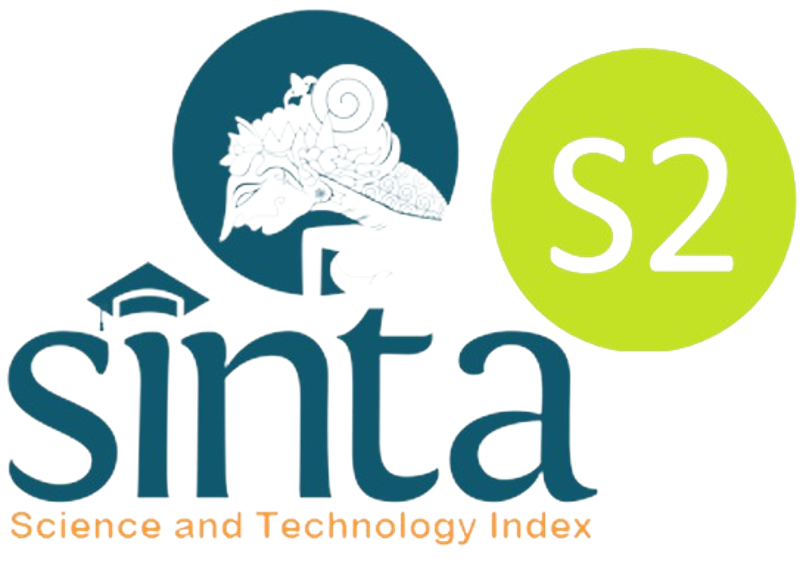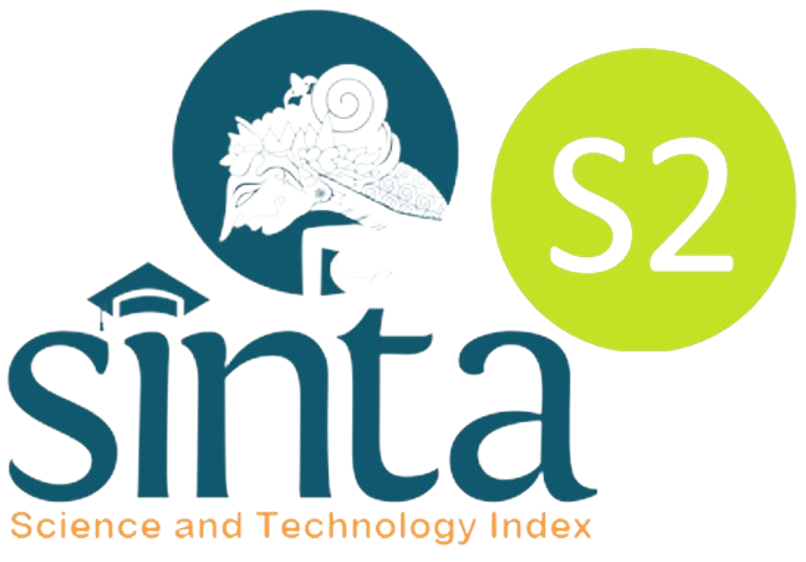Development of E-Module-Based PjBL to Develop Computational Thinking Skills Integrategration with CCR Implementation in Science Education
DOI:
https://doi.org/10.26740/jpps.v12n2.p176-191Keywords:
Cloud Clasroom, Computational Thinking Skill , E-Modul , Google Collaboratory , Project Based LearningAbstract
Objective: This research aims to describe the Validity, Practicality and effectiveness of E-Module. Methods: The research conducted using the type of development research using the ADDIE model was carried out at MTs Negeri 1 Jember. Result: This research develop E-Modul based PjBL. Validity obtained a percentage of 94% and belongs to the category of very valid. The practicality of obtaining a percentage of 97% is included in the excellent category. Effectiveness analysis based on the results of pretest and posttest calculations obtained an N-gain value of 0.57 which is included in the moderate category. The result of student response was 89.7% which was included in the very positive category. So, it can be concluded, the project-based E-Module based on learning business materials and simple machine is effective and can be used in science learning in junior high schools.
Downloads
References
Anistyasari, Y., Ekohariadi, E., & Munoto, M. (2020). Strategi pembelajaran untuk meningkatkan keterampilan pemrograman dan berpikir komputasi: sebuah studi literatur. Journal of Vocational and Technical Education (JVTE), 2(2), 37-44. https://doi.org/10.26740/jvte.v2n2.p37-44
Binkley, M., Erstad, O., Herman, J., Raizen, S., Ripley, M., Miller-Ricci, M., & Rumble, M. (2012). Defining twenty-first century skills. Dordrecht: Springer. http://dx.doi.org/10.1007/978-94-007-2324-5_2
Binkley, M., Erstad, O., Herman, J., Raizen, S., Ripley, M., Miller-Ricci, M., & Rumble, M. (2012). Assessment and teaching of 21st century skills. Dordrecht: Springer.
Branch, R. M. 2009. Instructional design: the ADDIE approach. New York: Springer US.
Cahyani, A. E. M., Mayasari, T., & Sasono, M. (2020). Efektivitas e-modul project based learning berintegrasi STEM terhadap kreativitas siswa SMK. Jurnal Ilmiah Pendidikan Fisika, 4(1), 15-20. https://doi.org/10.20527/jipf.v4i1.1774
Fitriani, W., Suwarjo, S., & Wangid, M. N. (2021). Berpikir kritis dan komputasi: analisis kebutuhan media pembelajaran di sekolah dasar. Jurnal Pendidikan Sains Indonesia, 9(2), 234-242.
Hunsaker, E. (2020). The K-12 educational technology handbook. https://doi.org/10. 1145/1999747.1999811
Irman, S., Waskito. (2020). Validasi modul berbasis project based learning pada mata pelajaran simulasi dan komunikasi digital. Jurnal Imiah Pendidikan dan Pembelajaran, 4(2), 260-269.
Jayanti, A. D., & Yunianta, T. N. H. (2022). Pengembangan Emometri (E-Modul Trigonometri) dengan project based learning berbasis STEAM. AKSIOMA: Jurnal Program Studi Pendidikan Matematika, 11(2), 1116-1126. https://doi.org/10.24127/ajpm.v11i2.4881
Laili, Ismi, Ganefri, Usmeldi. (2019). Efektivitas pengembangan e-modul project based learning pada mata pelajaran instalasi motor listrik. Jurnal Imiah Pendidikan Dan Pembelajaran, 3(3), 306-315.
MacLeod, J., H. H. Yang, Sha Zhu, dan Y. Shi. (2017). Technological factors and student-to-student connected classroom climate in cloud classrooms. Journal of Educational Computing Research, 56(6), 826-847. https://doi.org/10.1177/0735633117733999
Marhamah, M., Tanzimah, T., & Isroqmi, A. (2022). Pengembangan e-modul materi pecahan berbasis contextual teaching and learning (CTL) kelas V SD/MI. Jurnal Pembelajaran Matematika Inovatif, 5(3), 821-832.
Marpaung, D. N., & Pongkendek, J. J. (2021). Modul pembelajaran kimia SMP berbasis scientific approach pada materi asam dan basa berdasarkan kurikulum 2013. Jurnal Pendidikan Kimia Indonesia, 5(1), 44-50.
Muskania, R., & Wilujeng, I. (2017). Pengembangan perangkat pembelajaran project-based learning untuk membekali foundational knowledge dan meningkatkan scientific literacy. Jurnal Cakrawala Pendidikan, 36(1), 34-43 https://doi.org/10.21831/cp.v36i1.8830
Nisrina, S. H., Rokhmawati, R. I., & Afirianto, T. (2021). Pengembangan e-modul berbasis project based learning (PjBL) pada mata pelajaran animasi 2 dimensi dan 3 dimensi untuk meningkatkan hasil belajar peserta didik. Edu Komputika Journal, 8(2), 82-90. https://doi.org/10.15294/edukomputika.v8i2.48451
Ridlo, Z. R., Rusdianto, R., Afafa, L., & Ulfa, E. M. (2022). The development of android applications in junior high schools as learning media in astronomy course in SMP Cendekia Insani. Pancaran Pendidikan, 11(1), 103-110. https://doi.org/10.25037/pancaran.v11i1.358
Ridlo, Z.R. Dafik, C.I.W Nugroho. (2019). The effectiveness of implementation research-based learning model of teaching integrated with cloud classroom (CCR) to improving critical thinking skills in an astronomy course. Journal Of Physics, 1563 (012034), 1-15. https://doi.org/10.1088/1742-6596/1563/1/012034
Ridlo, Z.R. Dafik, R. M. Prihandini. C.I.W Nugroho, R Alfarisi. (2018). The effectiveness of research-based learning with computer programming and highly interactive cloud classroom (HIC) elaboration in improving higher order thinking skills in solving a combination of wave functions. Journal of Physics, 1211(012049), 1-21. https://doi.org/10.1088/1742-6596/1211/1/012049
Ridlo, Z.R., Indrawati, L. Afafa, S.Bahri, I.S. Kamila, Rusdianto. (2020). The effectiveness of research-based learning model of teaching integrated with computer simulation in astronomy course in improving student computational thinking skills. Journal Of Physics. 1829(012027), 1-14. https://doi.org/10.1088/1742-6596/1839/1/012027
Sukmadinata, S. (2016). Metodologi penelitian. Bandung: PT. Remaja Rosidataria.
Trilling, B., Fadel, C., & Bernie Trilling, C. F. (2012). 21st-century skills: Learning for life in our times. New York: John Wiley & Sons.
Trisnowati, E., Juliyanto, E., Dewantari, N., & Siswanto, S. (2021). Pengenalan computational thinking dan aplikasinya dalam pembelajaran IPA SMP. Jurnal Pengabdian kepada Masyarakat, 2(2), 177-182. https://doi.org/10.31002/abdipraja.v2i2.4514
Wahyuni, T., Wahyuni, S., & Yushardi, Y. 2017. Pengembangan modul multimedia interaktif berbasis e-learning pada pokok bahasan besaran dan satuan di SMA. Jurnal Pembelajaran Fisika, 6(4), 404-410. https://doi.org/10.26877/jp2f.v9i1.2307
Wing, J. M. (2008). Computational thinking and thinking about computing. Philosophical transactions of the royal society of London a: Mathematical, Physical and Engineering Sciences. London: Royal Society. https://doi.org/10.1098/rsta.2008.0118
Downloads
Published
How to Cite
Issue
Section
License
Copyright (c) 2023 JPPS (Jurnal Penelitian Pendidikan Sains)

This work is licensed under a Creative Commons Attribution-ShareAlike 4.0 International License.
 Abstract views: 567
,
Abstract views: 567
, PDF Downloads: 751
PDF Downloads: 751












